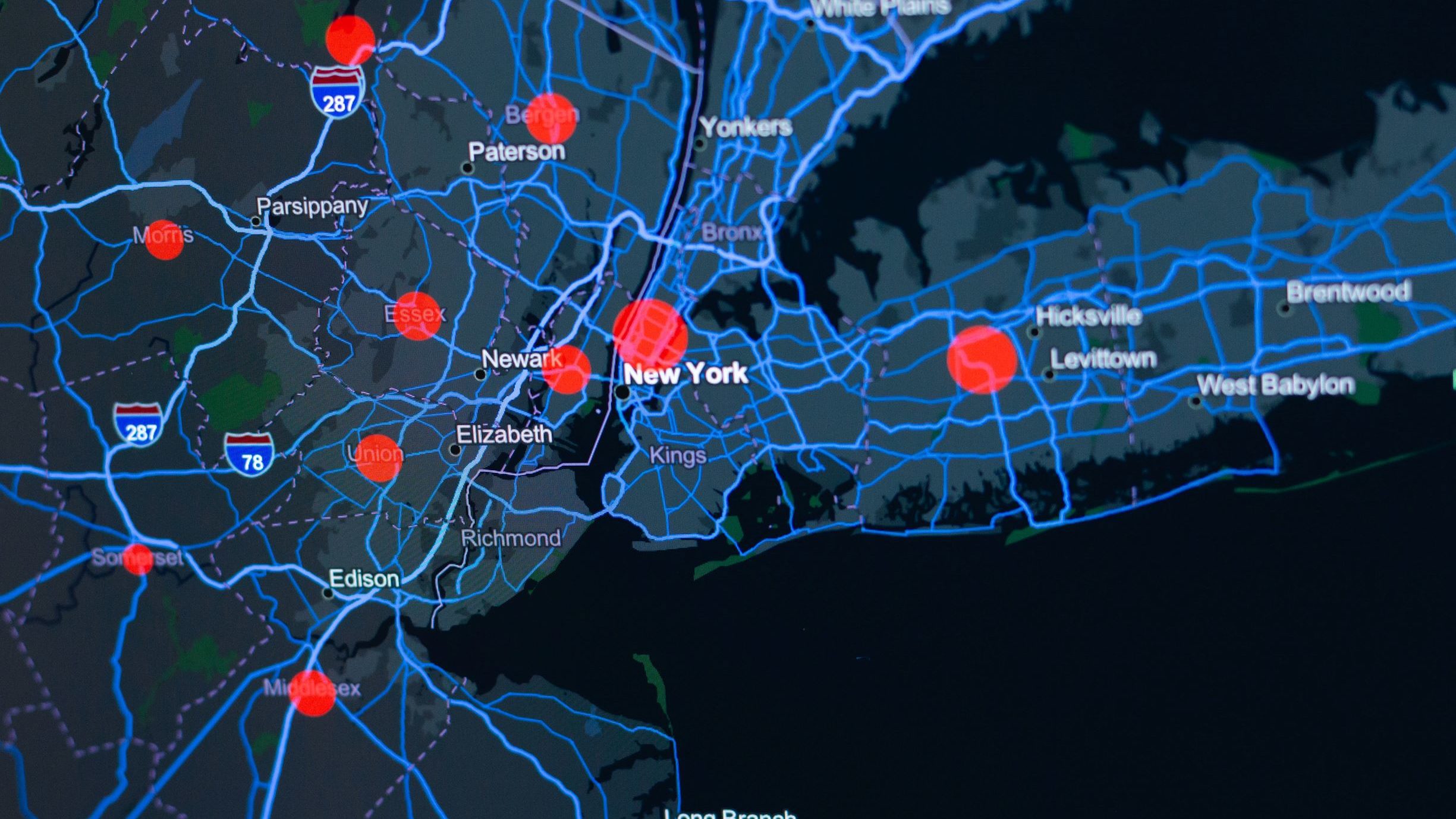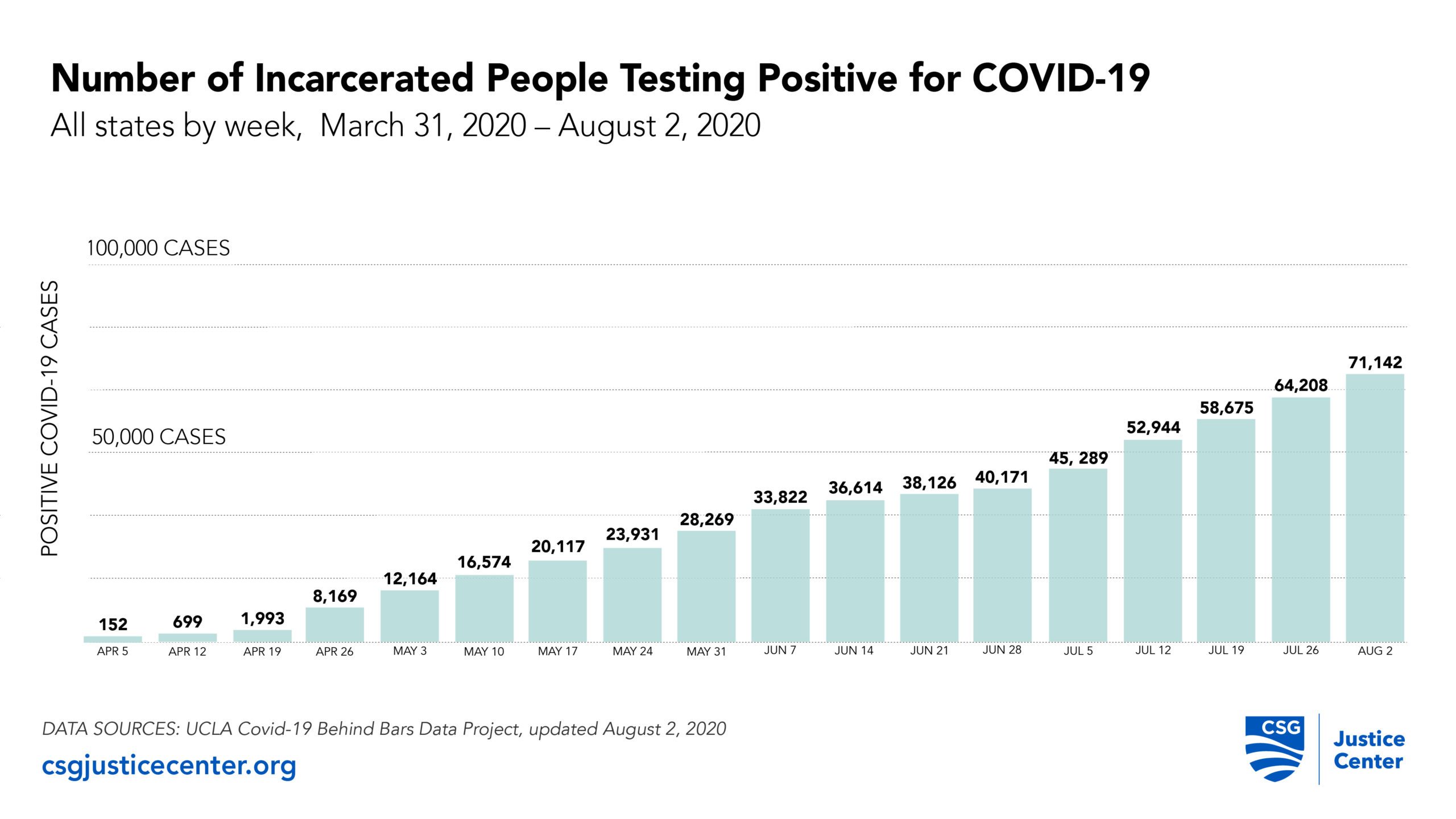
A new analysis by The Council of State Governments Justice Center shows that states are continuing to battle the growing spread of COVID-19 in their correctional facilities, with the number of positive cases in prisons rising 12 percent each week over the last month.
While states with some of the largest prison populations—such as Texas, California, Florida, Georgia, and Ohio—are seeing cases increase, Arkansas, Tennessee, and Delaware appear to have the highest proportion of COVID-19 infections among people incarcerated in their state prisons.
The following graph shows how the total number of cases is growing in state prisons across the country, and the maps below offer state-by-state data on how the virus is taking shape in these facilities.
1. From July 6 to August 2, the number of total infections among people incarcerated in state prisons grew 12 percent each week.

2. Texas, Florida, and California have the highest number of COVID-19 cases among people in state prisons.
However, Arkansas, Tennessee, and Delaware have the highest proportion of infections among their state prison populations. The five states with the highest numbers of total incarcerated populations are also still struggling to contain the virus.
| Total Incarcerated Population
(as of March 2020)* |
Percentage of Incarcerated Population that Has Tested Positive for COVID-19 as of Aug. 2 | Percentage of Corrections Staff that Has Tested Positive as of Aug. 2 | |
| Texas | 140,124 | 11.9% (n=16,628) | 8.3% (n=3,401) |
| California | 118,466 | 7.0% (n=8,252) | 3.1% (n=1,820) |
| Florida | 91,828 | 9.2% (n=8,471) | 7.4% (n=1,750) |
| Georgia | 54,723 | 1.7% (n=940) | 3.0% (n=504) |
| Ohio | 48,765 | 9.3% (n=4,535) | 7.3% (n=962) |
* Incarcerated population figures were obtained from The Marshall Project at the onset of data collection efforts.
3. The number of cases among incarcerated people doesn’t always outnumber the cases among corrections staff.
In most states, more incarcerated people than corrections staff tested positive for COVID-19. For example, in Arkansas, 4,008 incarcerated people tested positive vs. 283 corrections staff; in Ohio 4,535 incarcerated people vs. 962 corrections staff; and in Michigan, 3,896 incarcerated people vs. 384 corrections staff.
However, in six states, there are more positive cases among corrections staff than people incarcerated in state prisons. For instance, in Alabama there are 303 cases among corrections staff vs. 207 among incarcerated people; in Nevada there are 76 cases among corrections staff vs. 19 among incarcerated people, in Nebraska there are 31 cases among corrections staff vs. 10 among incarcerated people, and in New York there are 1,311 cases among corrections staff vs. 605 among incarcerated people
Number of Incarcerated People Testing Positive for COVID-19 as Reported by State Prisons, As of Aug. 2, 2020
Number of Correctional Staff Testing Positive for COVID-19 as Reported by State Prisons, As of Aug. 2, 2020
Stay up-to-date on COVID-19 in state prisons by subscribing to our weekly newsletter, Justice Briefing.
About the Authors











